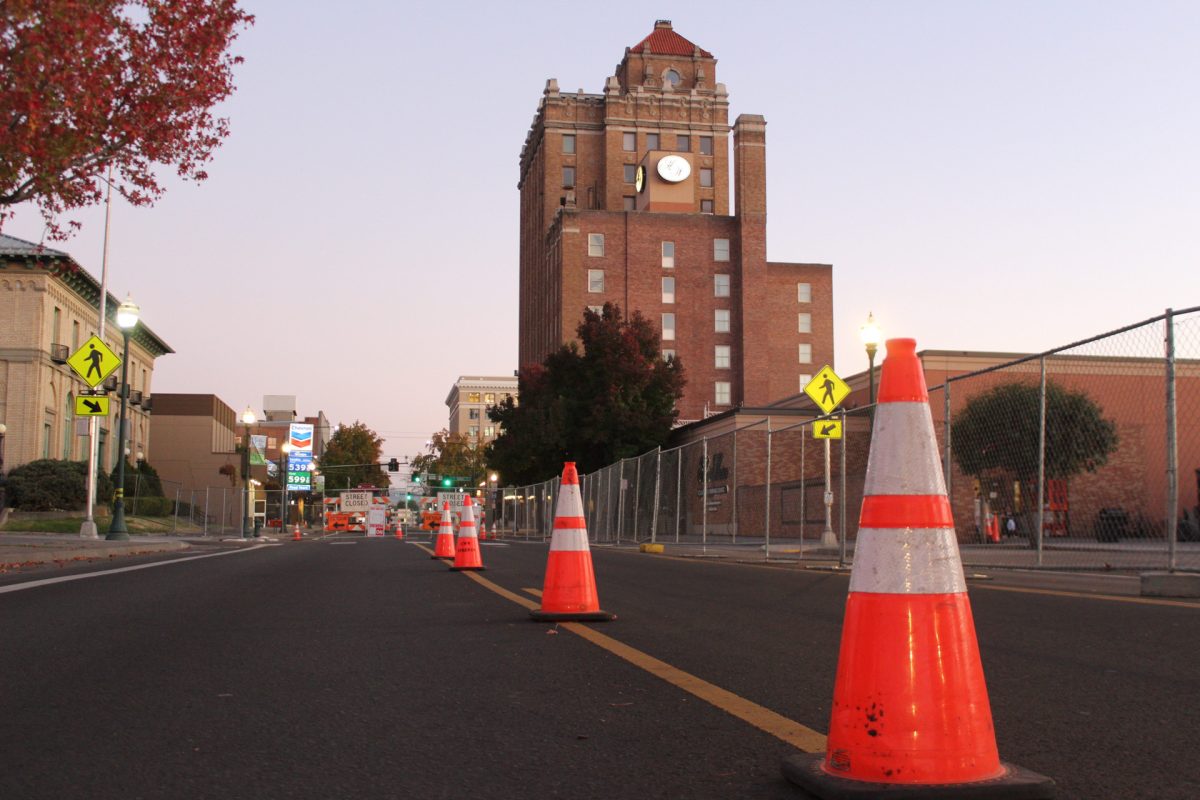On any given hot Walla Walla day, it appears that sprinklers are constantly running somewhere on campus. While watering is necessary to keep Whitman’s grassy areas as green as they are, sprinklers can often be a massive waste of water. Perennial sprinkler use on campus has led some students to raise concerns about water conservation at a self-proclaimed, “environmentally friendly school.”

Dan Park, director of the physical plant, tells students not to worry.
“In everything we do, we hope we’re taking into account the world and our impact on it,” said Park. “We think [our plant is] really sustainable.”
Instead of being taken from the normal city water supply, sprinkler water is drawn from a deep well next to the science building, drilled in 1963. Water runs through pipes in the Hall of Science to heat and cool the building and to help run the ventilation system. Then it is piped through Memorial Building for heating purposes, and finally it is run through the fountain outside Sherwood Center. From there, water is diverted into the irrigation system or, when there is more than needed to run the sprinklers, into College Creek.
“We irrigate when we have the water available,” said Park. “We generate water 24 hours a day [because of the science ventilators] and that’s why you see water running twenty four-seven.”
According to Park, the system was put into place about 25 years ago and was fine-tuned with the renovation of the science building in 2003. Before pumping stations were put into place, leftover water from the science building cycle ran directly into Mill Creek; today, most of the water is diverted into groundskeeping.
Because water from the science building is constantly available and there are no holding tanks on campus, it must be used fairly quickly. Therefore, the sprinklers cannot all run at a time ideal for watering, such as early evening.
“When we irrigate at maximum we can irrigate at 150 gallons per minute,” said Park. “We’re constantly generating this water so we try to use it 24 hours a day.”

Jeff Jenson, manager of the campus irrigation system, concurred.
“It’s a twenty four-hour cycle to get water to the main campus,” he said.
Jensen can decide when to divert water to the irrigation system and when to run it into College Creek – a decision that largely hinges on the seasons.
“When we get hot spells we have to keep the water on,” said Jensen. “Otherwise that’s when you start to see dry spots.”
Not all of campus is irrigated with water from Whitman’s well. Because of logistical constraints, small portions of campus are irrigated with city water. Baker Field, behind Harper Joy, is one such area.
“There was no way for us to practically get water across the railroad tracks,” said Park. “You rarely see it on though because it has three circuits.”
Because of the field’s small size, it requires less watering and can be watered at more ideal times. And although the system is a good one, it won’t always cover all the college’s needs.
“The well water system is stretched to the max [for irrigation purposes],” said Park. “If we add more property we’re going to be forced to use city water.”
Park hopes students understand that the physical plant does try to be sustainable with the watering.
Two local organizations, Walla Walla 2020 and the Oregon section of the American Council of Engineering Consultants, awarded the system for its creative use of leftover water from the science building.
Park also points out that watering the grass with recycled water helps out the city of Walla Walla.
“It takes the pressure off the city water system in terms of the city water supply,” said Park. “It’s not chlorinated and treated like city water. I wouldn’t drink out of the sprinklers.”











